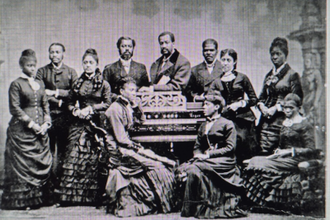The Last Testament of Lillian Bilocca and Hedda Gabler in Hull

Helen Carter in Last Testament of Lillian Bilocca
Lillian Bilocca was a fisheries worker who led a women's campaign for improved safety in the fishing fleet. She was spurred to action following Hull's triple trawler tragedy of 1968 which claimed 58 lives. Bilocca led a direct campaign to prevent undermanned trawlers from putting to sea, gathered 10,000 signatures for a petition, and secured governmental implementation of all the measures outlined in her safety demands.
Maxine Peake's play celebrates her life and explores its challenging context. The potent symbolism, ritual force and ethical challenge of the Catholic medieval morality play are integral resonances within this drama which is staged as a promenade performance in Hull's guildhall - a grand seat of power.
Lillian Bilocca, herself, was the spectators' guide for the evening - in a manner reminiscent of Virgil in the Divine Comedy, as he led Dante down to the lowest circle of Hell. (She had married a Maltese man, hence her exotic surname.) She stepped out of her cloakroom booth and greeted the audience warmly before leading us, past brandy-quaffing and cigar-toting men in evening dress, into a ballroom where two couples, in similar bling, effetely danced. This was the trawler owner's annual shindig: the Silver Cod Ball.
Bilocca made it clear that she had no truck with this tinsel display of Mammon and proceeded to look on in silence as the Hessle Road trawlermen whooped it up themselves during their few days of shore leave as randy, roistering and thirsty 'Three-Day Millionaires'. Cue some fine dancing, amusing chat, fisticuffs, and courtship.
Next we were led along labyrinthine corridors studded with the crests of ships, past open doors, with ships' engines groaning, and into the very council chamber itself, from whose benches we witnessed an intimate personal tragedy of a young mother who had lost her husband to his implacable mistress the sea (there were shades of Synge's great tragedy Riders to the Sea in the highly wrought lamentation here).
Then we were led back out again, past ghostly shivering trawlermen, all pale under ghostly light, crying silently out of the depths. We were invited to the Hessle Road women's meeting, where, from atop the council table, they bore moving witness to the loss of their loved ones and presented their list of health and safety demands. Female solidarity and determination were the keynotes here.
We were next summoned to the great hall, laid out for the banquet of the Silver Cod Ball. Ship owners and Aldermen with their 'lady wives' were at the top table or nursing their brandies in the hall. An odious and misogynistic MC wept crocodile tears for the lost trawlermen that year but opined, 'There are plenty more fish in the sea.' Just as he was about to award the silver cod to the most successful trawler owner, Lillian Bilocca and her 'headscarf revolutionaries' came to spoil the back-slapping. She spoke truth to power and confronted the shipowners with the horror of the 58 dead men. She and the women seized hold of the immense silver cod - an idol of wealth. They bore it aloft for Lillian to tear from its entrails not cod roe but pound note after pound note.
The women got up on the dining tables and the owners stalked out with their wives only for trawlermen to come in to call the women down. The women extended their arms as though they were being crucified. One by one they were dislodged or pulled down, until only Lillian Bilocca was left, lit up in ghostly light. Disembodied voices threatened to cut off the tongue of the 'Maltese whore'.
Throughout the performance, the sensitive music and beautiful singing of the Unthanks added deep layers of emotion and atmosphere to the whole. Here, at this sad end, the two Unthank sisters sang a valedictory round, that it was time to go, to pull up the anchor, but there should be no anger. The audience joined the band in singing the round, the singing in unison once more instilling a sense of solidarity. Overall, there was a solemnity and a sadness. As the audience left the Guildhall, Lillian Bilocca, other women and children stood as silent sentinels, like statues, and they received a final applause in the cold night air.
This was a fine and moving production. My only regret was that only one of the principal (and voiced) actors was from Hull and the preponderant lack of real Hull accents was a real pity, given the local story, and the importance of place lying at its heart.
Ivo Van Hove's National Theatre production of Ibsen's great play Hedda Gabler is also playing in Hull's New Theatre. This is a very interventionist and stylised mise en scène which has a profoundly alienated Hedda at its heart. Played in modern dress, we see Hedda cast adrift and full of embittered disappointment. We see the burning of what would have been a redemptive manuscript; partnerships and groups from which Hedda is excluded; an omnipresent and inscrutable maid, treated like scum by the men; and Hedda, similarly, is a trophy wife, whose rash part in the inglorious death of troubled genius Lovborg makes her utterly vulnerable to the predation of Judge Brack, here played as a deeply menacing sexual predator who pours red liquid all over Hedda, laid out for him like a lamb to the slaughter. She chooses her own manner of leaving the stage.
Both plays end tomorrow Saturday 18th November. Hedda Gabler is touring.
For more information see: www.Hulltruck.co.uk www.hulltheatres.co.uk


















